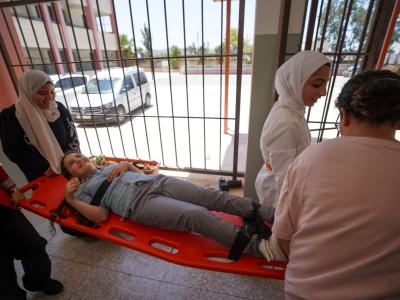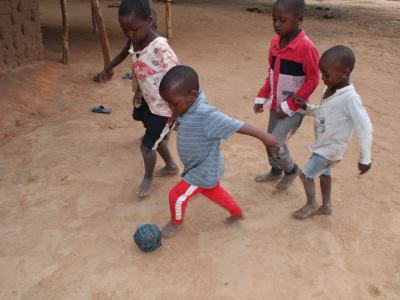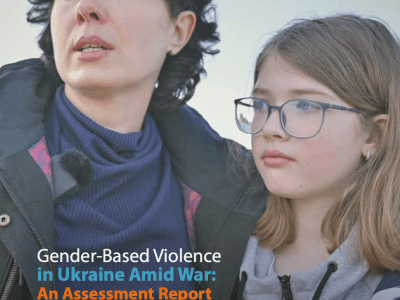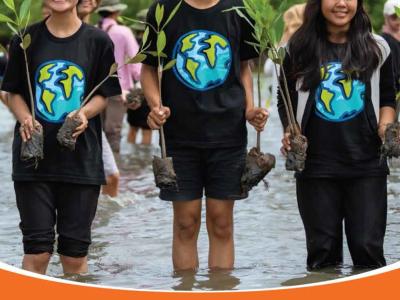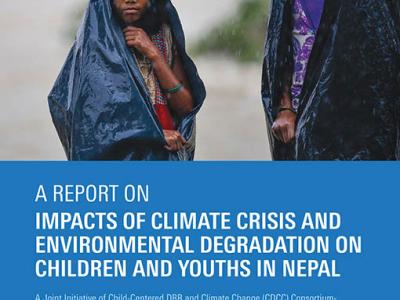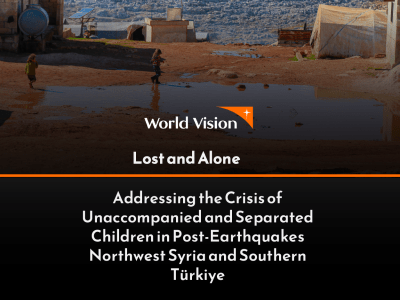article / October 30, 2024
Partnership brings safe water and health to Kapara Village
Yanauo shares how traditional bamboo water collection evolved into using plastic containers as their village lacked a safe water source, causing children to fall sick. World Vision's Markham Wash project introduced toilets and handwashing, leading to improved health. With a new gravity-fed water system, families now enjoy clean, accessible water.
press release / October 8, 2024
Thousands of Haitians deported from the Dominican Republic are greeted by expanding gang violence, hunger and lack of education
World Vision press release calls for justice and humanitarian aid in Haiti amid escalating violence, deportations, and a severe hunger crisis affecting thousands of children and families.
publication / November 15, 2024
Situation Report - October 2024 - Emergency Response in the West Bank
Over the month of October, World Vision provided humanitarian support to 53,000 people in 35 villages of the West Bank as part of our emergency response.
article / November 7, 2024
STATEMENT -CHILDREN'S EXPOSURE TO POST-ELECTION VIOLENCE IN MOZAMBIQUE
Mozambique's largest child platform, including World Vision, urges action to protect children amid post-election violence, citing Article 22(3) of the African Charter.
publication / October 15, 2024
Gender-Based Violence in Ukraine Amid War: An Assessment Report
World Vision and partner NGO “Girls” from Ukraine jointly conducted a nationwide study of the understanding and prevalence of various forms of gender-based violence and the effectiveness of the response.
publication / November 14, 2024
Child-Led Study: Young Minds Shaping Climate Action & Disaster Mitigation for a Sustainable Future
This Child-Led Study on the Lived Experiences and Perspectives of Children in East Asia is the result of the dedication and hard work of children aged 12-18 years old who are currently engaged with World Vision East Asia through the Young Minds CAMP - a regional leadership development academy.
publication / September 4, 2024
EVPRA Endline Evaluation Final Report
The report highlights the results of strengthened Government officials and communities during CVA processes and mainly how the “Interface Meetings” held at the Union Parishad with the participation of community people and duty bearers created opportunities for public hearings and ensured service delivery accountability.
publication / August 16, 2024
A report on impacts of climate crisis and environmental degradation on children and youths in Nepal
Study on climate change impacts in Nepal reveals severe risks to children’s health and development. Highlights coping strategies and calls for accelerated climate actions.
publication / August 8, 2024
Lost and Alone- Addressing the Crisis of Unaccompanied and Separated Children in Post-Earthquakes Northwest Syria and Southern Türkiye
This report presents the findings from a unique piece of research conducted by World Vision Syria Response in Northwest Syria (NWS) and Southern Türkiye. It is the first of its kind to specifically explore how the February 2023 earthquakes in the region have impacted unaccompanied and separated children (UASC) and who were separated from their families during the disasters. The study brings together the diverse perspectives and experiences of caregivers, community members and most importantly, Syrian UASC in some of the worst earthquakes-affected areas. The report underlines the critical role of community-based alternative care systems in caring for unaccompanied and separated children and emphasises the severe gaps in existing services for children without parental care. Finally, it calls for increased prioritisation of Syrian unaccompanied and separated children in both NWS and Southern Türkiye in the overall humanitarian response to the Syrian conflict.
publication / September 4, 2024
Scaling Social Accountability Evidence from Africa, Asia and the Caucasus
This publication shares World Vision’s evidence of the impact of social accountability after 12 years of investment in research and application across 48 countries, including 15 designated as fragile contexts/states.
